- Rumpf, Deck & Aufbau
- Elektrik & Energie
- Finanzierung
- Navigation & Kommunikation
- Wohnen, Schlafen & Spaß
- Bücher & Seekarten
- Online-Seminare
- Präsenzseminare
- Video on demand
- Ausbildung & Scheine
- Schiffsführung & Seemannschaft
- Versicherung
- Segeln mit Kindern
- Pantry & Proviant
- Deutsche Ostseeküste
- Dänische Ostseeküste
- Schweden, Finnland & Baltikum
- Deutschland
- Niederlande
- Großbritannien
- Spanien Festland
- Spanien Balearen
- Griechenland
- Mittelmeer (allgemein)
- Liegeplätze
- Anker & Ankerketten
- Kommunikation
- Schiffsausrüster
- Schlafkomfort
- Sicherheit & Rettung
- Soundsysteme
- Trinkwasser & Wassermacher
- Decksbeläge
- Decken- & Wandverkleidungen
- Charter-Agenturen
- Charter-Basen
- Kojencharter & Mitsegeln
- Kaufcharter
- Finanzierung (Yachten)
- Energiemanagement
- Motor & Zubehör
- Rigging & Mastbau
- Seekarten, Revierführer & Literatur
- Segelmacher
- Segelyachten
- Versicherungen
- Yachttransporte & Überführungen

- ANZEIGE (Info)
- Ausbildung Anbieter

Die Yacht-Skipper Akademie
Beschreibung, rya-trainings seit mehr als 20 jahren.
Die Yacht-Skipper Akademie Bernd Reese aus Essen hat sich als anerkanntes RYA Training-Center auf die britische Segelausbildung spezialisiert. Hier dreht sich alles um die sichere Handhabung und Navigation von Yachten in Gezeitenrevieren.

Startpunkt der Ausbildungstörns ist die Port Hamble Marina im Süden Englands. Von hier aus geht es in den Solent, den Ärmelkanal oder auch zu den Kanalinseln. Dabei setzt Bernd Reese vor allem auf den Erfahrungsschatz der Ausbilder: er selbst ist seit 20 Jahren lizensierter RYA-Instructor. Alle anderen Segellehrer, die für ihn tätig werden, bringen mindestens fünf Jahre Ausbildungserfahrung und über 25.000 Seemeilen im Kielwasser mit.

Wer sich für das Yacht-Skipper Training bei Bernd Reese entscheidet, erhält einen auf seine Wünsche und Vorkenntnisse angepassten Trainings- und Kursplan. Die Yachtmaster Offshore-Ausbildung verläuft dabei in drei Phasen: in der ersten Phase stellt das Team einen individuellen Kursplan zusammen, der darauf abzielt, Gezeitenpraxis zu sammeln. Die zweite Phase besteht aus einem Theorie-Kurs und verschiedenen Workshops. Die dritte Phase beinhaltet die zweiwöchige Prüfungsvorbereitung mit abschließender Prüfung im Solent.
Für den Yachtmaster Ocean stehen dann noch ein weiterer Theorie-Kurs sowie eine zweiwöchige Hochseepassage plus Vorbereitungs-Workshop auf dem Programm.

Die Yacht-Skipper Akademie Bernd Reese Altenessener Straße 408-412 45329 Essen Deutschland
Telefon: +49 02 01 31 97 493 [email protected] www.die-yacht-skipper-akademie.de
Bildergalerie

Mehr erfahren
Das könnte dich auch interessieren, rezept: scones, mallorca/cabrera – genehmigung und bojenreservierung – alle infos zum nationalpark, segeln/chartern rund korsika – ein törnbericht, wie ermittelt man die richtige kasko-versicherungssumme, segeln dänemark: 12 liegeplatz-geheimtipps rund um fünen, langlebigkeit von segeln: pflege, reinigung, lagerung, wartung und schutz, diese beiträge könnten dich auch interessieren:, riss im segel reparieren mit nähen – schritt-für-schritt-anleitung, bis morgen – in zweieinhalb jahren, tide charts: weltweite gezeitenberechnungen on- und offline (gezeiten-app), ankerplatz und marina puerto de arguineguín (gran canaria/kanaren), online-seminar: sardinien – maddalena archipel und costa smeralda (live), neuer song vom sailing bassman claus aktoprak, zerdrückt im treibeis – segelyacht anahita sinkt in der nordwestpassage, hafen/marina bodø (norwegen/lofoten), revier-info: porto santo (madeira).
- FAQ Online-Seminare
- Datenschutzerklärung
- Cookie-Richtlinie (EU)
- Haftungsausschluss

Train to Work for the leading international leisure and professional sailing companies.
The Yacht Academy specialises in professional Skipper development, partnering with the best schools and staff.

1. GET QUALIFIED
Choose the Training Programme for you. We have selected some of the best schools in the industry to provide training and examination to attain your Yachtmaster Offshore qualification.

2. GET EXPERIENCE
Once you are qualified you will have a crew placement period, which consists of on the job training where you will learn the ropes with one of our industry partners. The crew placement period typically lasts 2 to 3 weeks, depending on your skill level, and includes our 10-day industry training programme that takes place in the islands surrounding our base in Split, Croatia.

3. START WORKING
Once you are ready to start work as a professional Skipper, you will be appointed to skipper a yacht with one of our partner brands. You will be responsible for the yacht and up to 8 guests on week-long charter holidays under the guidance of your Lead Skippers. With a competitive industry salary, a summer in the sun and at least 8 weeks guaranteed work you will be repaying your course cost in no time.
When we say ‘Train To Work’ we really mean it! We take care of organising your course, your pre-season training and your work placement. And the best part? All graduates at The Yacht Academy benefit from this service free of charge in a scheme supported by our partners to encourage more young people to choose a different type of office.

OUR COURSES

Become a professional Skipper in 14 weeks – no experience required!

Take the final step in becoming a professional Skipper with our tailored course options.

Receive up to 50% course funding to kick start your career in the marine industry!
Yachting Monthly
- Digital edition
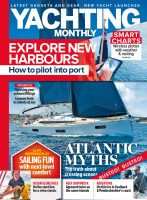
Skippering a boat for the first time: steps to success
- Katy Stickland
- September 18, 2020
Skippering a boat for the first time needn't be daunting, as long as you prepare. Matthew Diggle reveals how to make a success of taking charge

New skippers don't need to be at the helm, and giving crew tasks will keep them happy and motivated. Credit: Matthew Diggle
It’s a pity that skippering a boat for the first time can seem so intimidating.
Not much beats the feeling of being in charge of a yacht, deciding where to go, and taking the crew on an adventure.
And there’s a real sense of accomplishment at the end when you bring the crew and boat home safely.
For anyone who is new to sailing or who crews for someone else, following the RYA training path and becoming a Day Skipper is an excellent way of taking your sailing to the next level.

As you gain confidence you can start to charter and explore new cruising grounds. Credit: Matthew Diggle
It shows that you understand the fundamentals and can take on more responsibility when other people feel daunted by the thought of being responsible for a boat and its crew.
With a bit of preparation and planning, skippering is well within most people’s capabilities, especially if you don’t bite off more than you can chew for the first few trips.
Preparation is the key. Simply put, you have to decide where to go, who to go with, and how to get there.
I thought it would be useful to share the lessons I’ve learned when I first started skippering for those considering taking their first steps.
Skippering a crew
Sailing boats are not particularly spacious down below so I generally don’t try to fill every berth onboard.
Even so, it is vital that the crew can get along together and this means that you have to choose who to invite carefully.
This is often a bit of a juggling act, trying to coordinate different people and boat availability, so in the end you’re unlikely to be able to please everyone.
Just offer some reasonable options and hope for the best.

Careful crew selection will contribute to a happy trip for all. Credit: Matthew Diggle
It is also important that people know what to expect, so they don’t sign up thinking that they’ll have a spacious cabin with en-suite facilities when they’ll actually get a space in the shared forepeak in a boat with a single heads.
Similarly, being clear about the nature of the trip – that this is your first time skippering – will avoid adrenaline-junkies being frustrated by a gentle coastal cruise, or nervous novices being scared rigid during an offshore passage.
When skippering the first few times, it is well worth inviting an experienced and knowledgeable sailor to act as first mate.
But you should choose them wisely as you don’t want anyone who will take over or boss you about if you’re a bit slow working something out, or don’t do things in exactly the way they would.
What you really need is a calm and supportive person who will give you the space to experiment, have a quiet word in your ear if they are concerned that something is wrong, but who is capable of taking over if you are incapacitated in any way.
After all, you have to trust them to come back to pick you up if you have the misfortune to fall in, and you must be confident that they could get the boat and crew to somewhere safe if needed.

A competent first mate will make your life as skipper much less stressful. Credit: Matthew Diggle
In return for the safety and security they provide, you should listen carefully to what they say and pay attention to their skippering advice.
You should also make it clear to the rest of the crew who the first mate is and that they may have to assume command.
It is also sensible to ensure that not all the crew are novices.
Coaching new crew is time-consuming, and sometimes time is in short supply.
It also takes up mental space while your head needs to be concentrating on skippering the boat.
This is especially true when coming into a berth.
Having one or two people capable of handling the fenders and warps will avoid the sort of situation I got into on one of my trips where I didn’t notice the crew were busy trying to remember how to tie the fenders so that when I got the mooring slightly wrong, they didn’t see we were drifting towards another boat and I ended up shouting.
In the end, someone from the other boat pushed us clear, but it definitely wasn’t my finest hour as skipper.

With the crew briefed and kitted up, you’re ready to sail. Credit: Matthew Diggle
I usually send round practical information about arrangements, including advice about what to pack (and what to pack it in), about sharing cabins, what we will do about food, and also some reassuring words about the safety equipment on board.
More experienced crew members will probably already be aware of some or all of these things, but it is a good idea for everyone to have the same information so that there is a common starting point.
But I usually throw an extra sleeping bag in the car and make sure I check everyone’s equipped before setting off, just in case.
Organising a planning meeting, arranging to share lifts to the boat, or making some other excuse to get people together beforehand is a good idea.
The better people know each other, the more smoothly the trip is likely to run.
Encourage people to use email or social media to communicate, but make sure you ask for permission before sharing email addresses or phone numbers.
Keep your first skippering trip in familiar waters
Although it might be tempting to go exploring, you will probably have enough to think about without having to navigate around somewhere entirely new.
Indeed, the Day Skipper qualification says that you are only competent in ‘familiar areas’, but even here you might find yourself sailing from a marina or harbour you’ve not visited before.
If this is the case then do some research to get an idea of what to expect.

Sailing in familiar waters will let you focus on skippering rather than navigating new hazards. Credit: Matthew Diggle
When you pick the boat up, take the opportunity to chat with the charterer and people on other boats nearby to get some local knowledge.
They’re likely to regale you with anecdotes about other visitors who have come to grief in one way or another.
Don’t let these tales put you off, just listen carefully and then you won’t feature in their next story.
Unless you have a particularly trusting boat-owning friend you will probably also need to use your Day Skipper qualification to charter a yacht.
Again, you are better settling for something which is not too adventurous or enormous.
This is not the time to have to deal with something much bigger than you’re used to or with extra sails, rigging, or masts that you’re not accustomed to.
The cost of the trip
One of the first practical aspects of arranging a trip is to sort out the finance.
You will need to cover the cost of the boat, together with mooring and fuel, and then decide whether to include food, meals out, and drinks.
I find that the simplest option is to share all the costs equally, and the first step is to prepare a rough budget so people have an idea of how much the trip is going to cost.
It’s generally better to over-estimate and then give people a small refund, rather than to try to collect an extra few quid from everyone at the end of the trip if, for example, there was a lack of wind and so the fuel costs more than you expected.
You also need to consider what to do about the cost of any damage.
Continues below…

Masterclass: How to lead a happy crew
Toby Heppell gets advice on skippering with friends and family from Pete Goss, Dee Caffari and Conrad Humphreys

Competent Crew: On course for cruising harmony
Katy Stickland joined an RYA Competent Crew course to find out why instruction can make life as a sailing couple…

Night sailing tips for first timers
Cruising after dark doesn't need to be stressful. Toby Heppell shares his tops tips for night sailing

How to raft up safely and securely
James Stevens looks at the seamanship and etiquette needed to raft up and identifies the benefits and pitfalls of coming…
Do you trust everyone to stump up or would it be easier to include insurance in the basic cost of the trip?
You may find that potential crew are rather more enthusiastic about coming on a sailing trip in theory than they are in practice.
Asking them to pay a deposit when booking and the rest closer to departure is a good way of gaining commitment and preventing them from cancelling at the last minute.
Finally, record all expenses and payments so that everyone can check the figures and see that things have been divided up fairly.
This should help prevent disagreements.
There are a number of apps to make both the sums and payment straightforward.
Safety procedures
You are responsible for everyone’s safety and you should take this seriously, but in fact this usually isn’t too onerous if you are sensible and careful.
If you charter a coded vessel in the UK then it will come with a full set of safety equipment appropriate for its cruising limits.
All you will need to do is find where everything is stowed and familiarise yourself with specific details of the lifejackets, jackstays, and so on when you pick the boat up.
Then make sure the crew know how to use it, and do so at the appropriate time.

Brief the crew about safety equipment on board. Credit: Graham Snook/Yachting Monthly
I ask for an emergency contact number for each crew member, and in return let them have details of a shore contact.
I also ask crew members, in confidence, about any medical conditions that might affect them on the trip.
If someone falls ill you don’t want to be scrabbling about trying to find out if they have an inhaler or medication that could help.
Similarly, if you have to hand them over to an ambulance, the medics are likely to ask if they are allergic to common medicines.
There’s no need to share this with anyone beforehand, but I like to leave a copy with the shore contact and let the first mate know where the info is on the boat, just in case it were to be needed.
Catering for your crew
The first step when planning what to eat onboard is to check everyone’s allergies, likes, and dislikes.
With a modicum of thought it is quite feasible to cater for vegetarian, gluten-free, and other diets without making things too complicated.
There’s certainly no excuse for only offering a vegetarian crew member cheese sandwiches for every meal.

Good food on board boosts morale and can be a highlight of the trip. Credit: Matthew Diggle
On short, coastal trips I usually just cater for breakfast and lunch, and aim to eat ashore most evenings.
However, I like to have a simple ‘emergency meal’ on board, such as pasta and a jar of sauce, to make sure we can have a hot meal even if we end up at anchor rather than in a marina as planned.
I find that snacks, fruit, and biscuits are always welcome, and distributing a few chocolate bars can really lift the spirits during a hard slog or a long beat to windward.
Navigating your first trip
Once you’ve selected your crew, booked a boat, and decided on a cruising-ground, it’s time to start on the detailed preparations.
It is worth putting some effort into making the actual trip as straightforward and stress-free as possible.
Skippering means you’ll have lots to think about, so take any opportunity to ‘cheat’ by preparing things beforehand.
Your RYA training will have taught you how to work out tidal depths from the tables in an almanac, but why not print out some tidal curves for the time you’re away, in particular for any marinas you’re thinking of visiting?
Planning and navigation software packages can do this well in advance, and you can find information for the next few days online.
After all, you can still do things the traditional way if you want to impress your crew (or just to prove to yourself that you remember how) but if things are going wrong or time is short then having ‘one you prepared earlier’ can be a literal life-saver.
Weather forecasts
Similarly, you can download weather maps and forecasts for the next few days before setting off.
Obviously, things will change so you will have to re-check the forecast every day, but having a feel for the general weather pattern should help you decide whether to turn left or right when you leave the marina on the first day.
Unless you’re feeling particularly masochistic or determined to experience ‘life at an angle’, it’s not very clever to spend the first half of a trip on a hard beat only to find the weather system passes and you spend the second half on a hard beat back again, when setting off in the other direction initially would have resulted in a pleasant cruise, both ways.

Plan a couple of route options in case the weather changes. Credit: Matthew Diggle
Finally, get hold of any information you can about places you might visit or that you might want to have in reserve as bolt-holes.
Printing out some sketch-maps and pilotage notes can help you stay up on deck rather than spending time below checking the charts.
Share your plan with the crew, but make sure everyone knows that you might have to revise it due to things like a change in the weather.
Picking up the boat
Try to pick up the boat before the crew arrives.
Taking the inventory and doing the handover is much easier if the boat is not full of people and all their kit.
Then put the kettle on ready to give the crew a warm welcome.
If you’re parking a car at the marina then it is sensible to leave as much stuff in it as possible, particularly bulky bags and rucksacks.
A set of dry going-home clothes (and shoes) together with a dry towel and a bag for damp kit is a good idea if you think you might arrive back cold and wet on the last day – and if you’re sailing in the UK that is pretty likely!
Briefing your crew
Brief the crew before setting off.
Keep this simple and to the point; you don’t want to worry people, but it is important to point out the key things.
I usually include:
- Lifejackets and tethers
- Fire prevention and extinguishers
- Galley and gas safety
- First-aid kit
- How to turn off autopilot
- Using winches safely
- Starting the engine
- VHF radio and sending a DSC mayday
- Using the heads
Give a briefing that is appropriate for the crew, so you might have to have a couple of different briefings or even give one to the experienced people and get them to brief it on.
It’s a good idea to show people how to use pontoon cleats before setting off, rather than trying to explain this at the end of the day.
Other things about sailing the boat can be introduced gradually over the course of the day.
Consider having simple standing orders to make it clear what’s expected of the crew.
These should include rules about wearing lifejackets and tethers, such as ‘whenever you want to and whenever I tell you to’.
Remember to let your shore contact know when you set off, and also when (and where) you arrive.
Using the RYA SafeTRX app is a great way of ensuring that they are alerted if you’re overdue and it can also produce records of the trip that the crew may find interesting, but do keep your mobile charged during the trip or you might not be able to close the trip when you arrive, leading to possible confusion or concern.
When skippering, try to keep everyone involved in running the boat.
In challenging conditions it may be prudent to limit some tasks to more confident and experienced crew, but don’t let them dominate and hog the helm or other exciting jobs the rest of the time; make sure that everyone gets a turn.
Remember to be positive about everyone’s efforts, patient if you have to explain things, and gentle if you have to correct someone.
After all, they’re here to enjoy themselves and a harsh word may put someone off ever sailing with you again.

If you can, go with the wind when it blows up. Your crew will thank you. Credit: Matthew Diggle
Keep an eye on the crew so you’re aware if anyone is starting to suffer from seasickness or is getting cold, and deal with it before it gets too bad.
I find that putting seasick crew on the helm or persuading them to lie on a bunk with their eyes closed usually helps.
Hot drinks and an offer to pass up warmer clothes will help a cold crew member who is, perhaps, avoiding going below decks.
You are in charge of the boat and part of skippering is to ensure the crew have confidence in you.
So, remain calm at all times, or at least appear calm while you work out what to do next.
Don’t dither, it’s your responsibility when skippering to make decisions and when faced with a choice almost the worst thing you can do is nothing.
On the other hand, don’t be afraid of changing your plans if conditions change.
Don’t sail on regardless, hoping that things will turn out alright; shorten the trip if the crew are struggling, change the destination if the wind shifts.
Final words on first time skippering

Matthew Diggle started sailing after signing up for the 2011-12 Clipper Race. Since then he’s cruised in UK waters and off the Italian and Croatian coast. Credit: Matthew Diggle
It’s always worth having a debrief at the end of the day and of the trip to reflect on what people enjoyed, learned or didn’t understand, and hopefully this will help ensure everyone leaves happy.
As a skipper you are allowed to have fun too, but it is different to going on a trip that someone else has organised.
It may seem hard work and a little daunting to start with, but you’ll get into your stride after only a few trips.
I find it immensely satisfying when crew tell me that they’ve enjoyed a trip, that they’ve learned new skills, and, most of all, that they want to come back.
So why not start planning a trip and gathering a crew now?
First time skippering checklist
- Select crew with similar expectations
- Mix of abilities and experienced first mate
- Set expectations of boat and plans early
- Email joining instructions ahead of time
- Take a spare sleeping bag and waterproofs
- Meet up before the trip if possible
- Share shore contact details for the boat and get emergency contact for each crew
Cruising grounds
- Stick to familiar areas for first-time skippering
- Research new places you want to visit
- Get some local knowledge from charter company or marina
- Charter in an area you know
- Opt for a modest-sized boat that will be easy to sail
- Stick to white sails and don’t worry about spinnakers
- Arrive before the crew to settle in
- Decide what costs you will cover, and what you will split
- Be clear with your crew about how much it will cost
- Include a margin for extra fuel, and refund if possible
- Ask for a deposit so crew commit
- Check the boat has all the necessary safety equipment and where it is
- Brief your crew on safety gear and procedures, above and below decks
- Check if crew are on medication or have medical requirements
- Check and fit lifejackets
- Establish standing orders of when to wear lifejackets, who is in charge, and who first mate is
- Check for crew allergies, likes and dislikes
- Decide if you’re cooking on board or eating ashore
- Have enough for breakfasts, lunches and a back-up meal
- Take plenty of snacks, tea, coffee and milk
- Print out tide times, tidal curves and weather forecasts beforehand
- Plan a couple of route options to cover different weather scenarios
- Aim to make the first sail an easy one
- Prepare pilotage for new places you plan to visit
- Let shore contact know plans/use RYA SafeTRX app
- Share and rotate roles among crew
- Look out for bored, cold or seasick crew
- Distribute snacks and drinks regularly
- Keep an eye on the big picture – passage plan, weather, navigation and safety
- Teach crew if you have time, but don’t be distracted
- Discuss plans, but you make the final decisions
- Debrief at the end of the day and of the trip
For all the latest from the sailing world, follow our social media channels Facebook, Twitter and Instagram .
Have you thought about taking out a subscription to Yachting Monthly magazine?
Subscriptions are available in both print and digital editions through our official online shop Magazines Direct and all postage and delivery costs are included.
- Yachting Monthly is packed with all the information you need to help you get the most from your time on the water.
- Take your seamanship to the next level with tips, advice and skills from our expert skippers and sailors
- Impartial in-depth reviews of the latest yachts and equipment will ensure you buy the best whatever your budget
- If you are looking to cruise away with friends Yachting Monthly will give you plenty of ideas of where to sail and anchor
How to become a skipper
So you want to be a yacht skipper.
Many yachting graduates choose to start their careers on smaller yachts where they have the opportunity to refine their sailing skills and develop a great reputation. Being a Flotilla Skipper, Charter Skipper or Delivery Skipper is a great way to start working afloat in an industry you love.
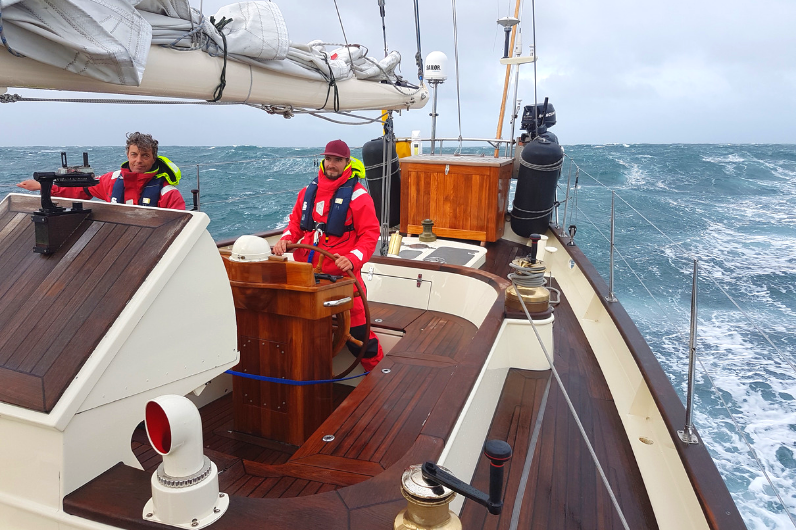
What’s a skipper?
A skipper is a person who has command of a boat or watercraft and is more or less equivalent to a captain in charge of a ship. The skipper may or may not be the owner of the boat.
There are a number of types of different roles including flotilla, charter and delivery skippers.
Flotilla Skipper
What does a flotilla skipper do.
A flotilla skipper is responsible for the running, sailing, maintenance and guest care of a yacht forming part of a holiday flotilla or sometimes the entire group of up to 20 yachts, which form the flotilla.
Flotilla holiday companies often operate in the Mediterranean, you can earn anything between €100 – €250 per week (depending on operator) but can also earn some reasonable tips.
Working as a flotilla skipper is a great way to build on your miles.
Personality traits
You will need to be an outgoing and friendly personality who can accommodate guests at all times. You will need to be organised and efficient to cover all admin and paperwork as well as deliver safety and technical briefings, conduct general maintenance and assist guests with sailing.
Flotilla Skipper Salary
Flotilla holidays companies often operate in the Mediterranean, you can earn anything between €100 – €250 per week (depending on operator) but can also earn reasonable tips.
Flotilla Skipper Jobs
The types of jobs vary on different vessels. Some of your tasks will include but not be limited to:
- De-fouling propellers and replacing anodes before launching
- Checking and replacing all deck fittings where necessary
- Assisting engineers with out-of–water work
- Checking skin fittings
- Replacing running rigging
- Hoisting anchors
- Servicing winches
- Hoisting sails
- Fitting biminis
- Fitting guardrails
- Checking dinghies
- Splicing and whipping ropes
Charter Skipper
What does a charter skipper do.
A Charter Skipper manages and captains a yacht that has been hired out to paying guests. This role typically involves taking command of 35 – 60ft yachts (catamarans are particularly popular) operating in the Mediterranean or Caribbean.
You will have a busy schedule with a high turnover of guests during the season that will want to pack a lot into their 1 or 2-week holiday.
You will need to be an outgoing and friendly personality who is committed to providing the highest level of customer service.
A hard-working attitude is required, as you will be responsible for all aspects of the charter operation from maintenance and passage planning to the general management of the yacht.
Charter Skipper Salary
Charter Skipper salaries range based on experience, position, size of yacht, and type (charter vs private). Here is a simplified break down of monthly skipper crew salaries in dollars:
Charter Skipper Jobs
There are several responsibilities for a charter skipper. These include but not limited to:
- Planning the entire passage to the proposed destination, possibly over a number of days
- Navigating the vessel
- Knowing how to operate and maintain all the equipment on board
- Taking care of the safety of the vessel and the crew
- Management of the vessel in all respects
- It is the responsibility of the skipper to ensure that whatever trip the vessel is making whether for fishing or for holidays, he follows the regulations and maritime laws
Delivery Skipper
What does a delivery skipper do.
A delivery skipper is responsible for the safe journey of a yacht to its new owner or meeting the owner of the boat at a particular destination.
You are your own boss when working as a Delivery Skipper, you don’t have the responsibility of guests but it is up to you to make sure that the boat gets there safely and on time.
Delivery skippers usually work on a freelance basis or for an agency, either way, both will be looking for skilled sailors so your level of qualification and experience on the water will determine how much work you will pick up.
You will need to be a determined and reliable person with a good work ethic. Taking on this type of role means that you will have the benefit of a flexible lifestyle, you could be working for long periods of time followed by long periods of time at home, this role could also take you to any part of the world.
Delivery Skipper Salary
Your travel and food expenses will be paid for while on a delivery, freelance delivery skippers often negotiate their own wage but on average you could expect to be paid between £100 – £140 per day. As a newly qualified Yachtmaster, you will need to build on your miles and experience before taking on the role of skipper.
You can do this by joining a delivery as a crew member (often unpaid).
Delivery Skipper Jobs
- The safe handling and navigation of a vessel
- Ensuring that all activities are carried out in accordance with Safety and Operating Procedures
- Leading and supervising the regular crew and any relief crew and volunteers
- Looking after the welfare of clients, crew, volunteers, and trainees, including morale and discipline
- Dealing with unexpected issues which might arise, such the need to implement emergency repairs
- Maintaining paperwork
- Being professional, and acting with tact and diplomacy at all times (both on and off the vessel)
Register your interest
- First name *
- Last name *
- How did you hear about UKSA? * –None– Campaign Dinghy Show Educational Visits UK Event GroupAccommodation.com Guardian Media IOW College IOW County Press London Boat Show Online PlanMySchoolTrip.co.uk Press Radio Referral School Travel Organiser Social Media Southampton Boat Show Top School Trips UKSchoolTrips.co.uk Visit IOW Yachts & Yachting
- General notes
- Opt-in to receive course information and relevant offers
- Accept Privacy Policy and Terms and Conditions .
- Comments This field is for validation purposes and should be left unchanged.
Courses you may also be interested in

If you have any questions or need to get in touch:
Speak to UKSA on +44 (0)1983 294941 or email us
Home » News » How To Become A Qualified Yacht Skipper
How To Become A Qualified Yacht Skipper
Request a call back when we are open, request a video call back.
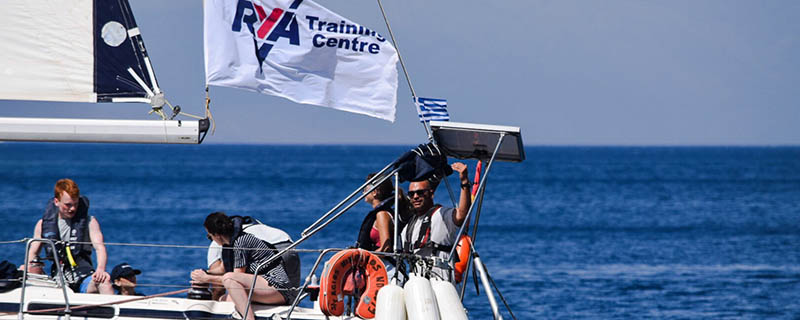
Reading time 4 min 45 sec
Author Lee Savage
Whatever your reasons for getting into sailing, it is not as difficult as you might imagine and there are a lot of different ways to get started. With so many destinations to choose and so many sailing experiences, it can be overwhelming to decide where to start.
If exploring fantastic bays, discovering remote islands, swimming and relaxing in the sun with a good book sounds like the kind of yacht cruising you are looking for then Cabin Charter will be the way to go.
If you would like to dip in and see but you are not sure if it’s for you our beach club has a dedicated Yacht where we offer several opportunities including two days Beginner Yachting (16h) while you stay in our Beach Club Hotel .
But you are here to find out how to become a Yacht Skipper, learn a new skill and take the first step towards becoming qualified, opening a whole new world of possibility for holidays and adventure travel. Even if you only ever do one course, you will have experienced the trip of a lifetime.
The RYA is a world-recognised organisation authorised by the UK maritime coastguard agency to issue international certificates of competence. Seafarer instructors are all experienced RYA instructors and can deliver a challenging syllabus to take you from no experience to a qualified licensed skipper through a series of RYA courses outlined below.
Our Training Centers – help you become a skipper

RYA Training In The Mediterranean
For our training yachts in Greece and Croatia, you have the opportunity to learn alongside a fantastic holiday experience. Naturally, it is a more intense experience than a Yacht Charter holiday. You will spend most of your days absorbing the syllabus, but there will also be opportunities to swim and explore the beautiful islands.
Learning alongside our flotilla, you will also have the chance to participate in group meals, our punch, and beach parties. Popular with experienced and newly qualified skippers alike or those seeking to improve their abilities with the support of our skilled lead crews. Filled with like-minded sailors, you will meet skippers who have already taken steps into the sailing world and discovered how accessible it is. It’s a tremendously positive and supportive environment to learn alongside.
RYA Training In The UK
Our UK school offers numerous bespoke courses for those wishing to brush up on any particular skills before flying to their next sailing holiday be it boat handling or just refreshers. Of course, we offer all the practical RYA courses including Competent Crew, Day Skipper & Coastal Skipper (for Day Skippers wishing to take there sailing further)
Based in Southampton, it offers fantastic sheltered waters sailing in the lea of the Isle Of Wight. It’s a great location to challenge your tidal knowledge and experience the lively sailing environment made famous for events like the Fastnet Race, the Round the Island Race and Cowes Week.
How to Become A Skipper
The Competent Crew course is perfect for somebody who has never been on a yacht before. It is the broadest course in the RYA syllabus covering virtually everything to do with sailing and living onboard a boat. You will have the opportunity to test your skills and will come away with a great sense of achievement and a good understanding of where to go next!
As an instructor for many years, I have discovered that even more experienced sailors can benefit from this course, there is always another level of detail to learn. If you haven’t sailed for a while or had any formal training, this course will not only be an excellent refresher, but you will be surprised how many new things you can learn. For more experienced sailors, this is a unique opportunity to polish the essential fundamentals of sailing.
Training in Croatia Training in Greece Training in the UK
Theoretically a skipper
With some sailing experience under your belt, you are ready to study the theory. Reading about navigation, sailing, and charts will seem much less daunting. You are now prepared to take the Day Skipper theory course. The Day Skipper Theory syllabus contains all essential theoretical knowledge required to become a skipper. It can be completed online at your own pace, We offer Navathome with all the needed resources sent to your home, and you can even use your repeat customer discount.
If you don’t feel ready
Not everybody is prepared for the Day Skipper course right away, we all learn at different rates and bridging the gap between the competent crew and Day Skipper courses is best achieved with Bespoke training, this can help you refine those skills that you think you lack. Commonly this is boat handling, we all know there is nothing more exhilarating than bringing a beautiful yacht alongside a concrete harbour wall! We offer bespoke training at all of our bases in Greece, Croatia, and the UK.
The courses in the Mediterranean are all one week. Our UK school offers much more flexibility for weekends or any other length or start days. Talk to one of our consultants to find out more.
General skills training works very well alongside the day skipper course. You will get to see others go through the course while you polish the fundamentals. Having feedback from an instructor while learning alongside the standard RYA courses can give you the confidence to grow without the pressure of a restricted syllabus. Talk to one of our consultants to find out where and how we can help you get to the next level.
The Sailing Licence
With your Day skipper theory ticket in hand and some recent sailing experience, You will be ready for the Day Skipper practical course. Taking everything you have learned in the first two courses, this turns you into a responsible skipper. You will learn to handle the boat, bringing it into port, directing your crew to ensure everyone is safe and comfortable.
Call 0208 324 3118 Email [email protected]
Now you are qualified as a skipper
With your internationally recognised license in hand, you now have the opportunity to take your friends and family sailing on Yachts around the world. I am not surprised if this might feel incredibly daunting as this license can be achieved in as little as three weeks.
Flotilla can be a great option to help build your confidence. As well as being fantastically social flotilla offers you the opportunity to grow as a skipper with the security of having our lead crew on standby to assist or advise on any aspect of sailing. You can find more about our flotillas here .
A whole world of sailing
As soon as you feel ready, you will be free to charter yachts worldwide. As an internationally recognised skipper, you can benefit from bareboat prices and the freedom to travel at your own pace. Seafarer has a vast range of worldwide destinations. Click here to find out more.
If you are still not sure
Perhaps you are not sure where you fit into all of this. Why not talk to one of our team? We are a small yet experienced company in the world of sailing, and we would be happy to advise you on how best you can get started.
Recent Posts
- Why experience Greek (Orthodox) Easter in Corfu
- Winners of the 2023 Photo Competition
- Seafarer receives Feefo Platinum Trusted Service Award 2024
- Come and see us at the RYA Dinghy Show
- Top Tips for Family Sailing
- Where to go for your perfect family flotilla holiday?
- Choosing a Yacht for your family flotilla holiday
- How to take the train to our Corinth Base
- 2024 Preview Brochure
- Southampton Boat Show 2023

Join our mailing list
Get our latest news and special offers.
We send around 3-4 emails a month
Don't worry it's easy to unsubscribe
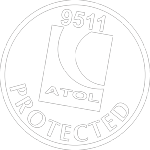
- Course Checklist
- Important Information
- How to Get to Us
- Our Instructors

How to Become a Yacht Week Skipper
Possibly the best job in sailing.
Here at Sailing Virgins, we are often asked about what it takes to become a skipper for The Yacht Week. We should know: all instructors at Sailing Virgins are current or former skippers and/or instructors with The Yacht Week, so we thought we would share some tips. This post introduces The Yacht Week, the Skipper Academy, and gives you the nine steps to make a Yacht Week Skipper. For a free infographic, click here .
What Is The Yacht Week?
If you are reading this you are probably already aware of The Yacht Week. If not, watch their trailer below. In short, the Yacht Week is a global phenomenon, where people - mostly in their 20s and 30s - become part of sailing events which are staged in six destinations around the world.
If you are into meeting some great people, enjoy partying and like the sound of sailing around the Mediterranean during summer (or any one of half a dozen other locations), check them out.
The Yacht Week Skipper
All Yacht Week skippers must have their RYA Yachtmaster certificate or equivalent. However, the Yachtmaster certificate is only the beginning concerning the Skipper Academy.
For qualifications, the Quarterdeck literature states a Yachtmaster Coastal level is required as a minimum, however, we recommend a Yachtmaster Offshore level, as this will increase your chances of being selected for the Academy and passing.
Besides, the additional miles and experience can come in very handy during a 40 knot squall at 7am when you are effectively single-handing.
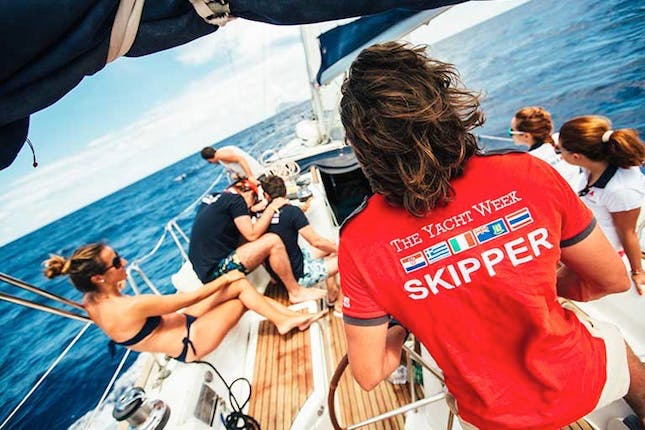
The coveted Yacht Week Skipper polo.
The Quarterdeck Skipper Academy
The Skipper Academy itself is run by Quarterdeck . Quarterdeck is a company related to, but separate from, The Yacht Week. Quarterdeck exists to train skippers in the advanced flotilla methods required by The Yacht Week and other sailing events companies.
The Skipper Academy is a 7-10 day course (current iterations have it at 8 days) covering principally how to deal with paying crews, familiarisation with the sailing routes and how to raft in their various configurations (such as line rafts, tunnel rafts, perfecting med mooring among other skills).
The Skipper Academy itself is widely acknowledged by participants to be one of the best weeks of their lives. It is tough. In any given course the pass rate is around 70-80%. Successful candidates are then invited to work in one of The Yacht Week’s locations, usually starting with Croatia.
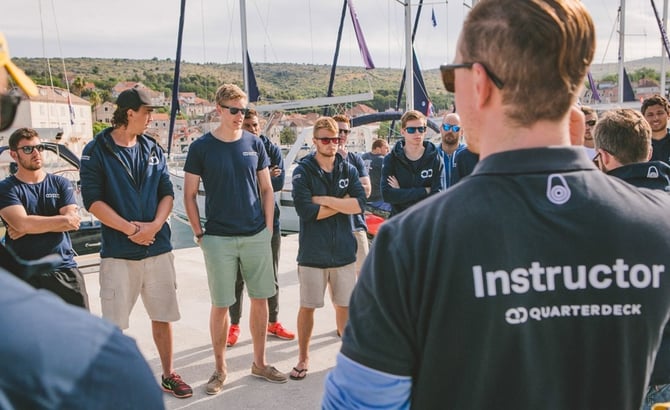
Making Yacht Week Skipper In Nine Steps
There are many routes you can take to become a skipper for The Yacht Week. The nine steps below will help you to become not just a skipper for The Yacht Week, but a confident one at that.
1. Basic sailing experience
Budget: $0 - $500
Classic Sailing Virgins Education
Either through sailing with a friend, joining a local community sailing club or a university sailing club. Weekend races, beginner sailing courses, anything that gets you time on the water and on the winches.
Any time spent on a boat is beneficial here, whether it is on a sailing vacation (The Yacht Week included) or just on a lake near your home, on a dinghy. The more time spent here, the merrier.
2. Sailing Theory
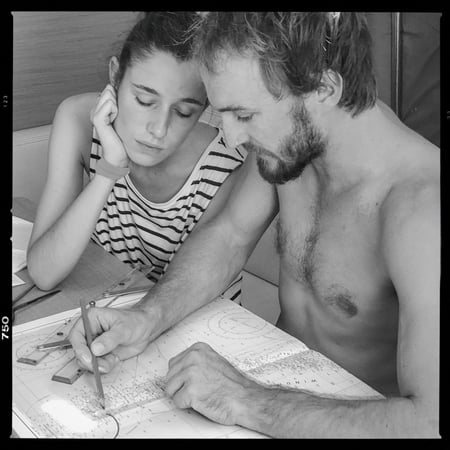
This is usually classroom-based learning such as NauticEd Bareboat Charter Master, ASA 103/4, RYA Day Skipper, or online versions of this such as NauticEd.
During this course, you will be introduced to the fundamentals of navigation, weather and boat systems.
The cost of this is in cluded in some intermediate courses such as those offered by Sailing Virgins, and costs $250 - $500 if undertaken separately.

3. Intermediate Sailing Course
Budget: $2,500 - $3,000
This is a 1-2 week duration, live-aboard sailing course where your instructor will impart to you the skills necessary to sail your own boat. Depending on the course you choose, this will count for your miles and variety of experience.
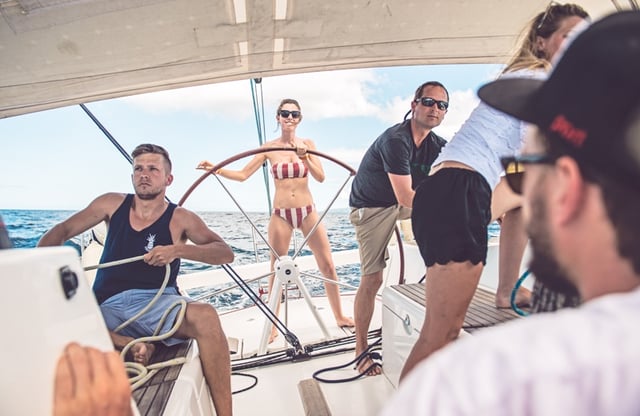
Some intermediate courses (such as the Sailing Virgins Island Adventure Course) will include extras like night passages and sailing between countries.
Sailing Virgins courses are designed for people in their 20s and 30s - Sailing Virgins is the only sailing school in the world to offer this. This makes the week much more social, athletic, and prepares you for some of the techniques assessed during The Skipper Academy.
4. Purchase Sailing Gear
Budget: $1,000 - $2,500

Image thanks Zhik
At this stage, you may look to purchase your own foulweather gear, deckvest, and Personal Locator Beacon. Ideally, you want to be self-reliant, as given you will be sailing on other people’s boats and across oceans, you cannot always vouch that their methods or equipment are up to speed.
You ultimately need to trust your gut before embarking on any long journey. We have known sailors to refuse getting on a boat due to either issues with the skipper or the boat itself. Regardless of boat or skipper issues, when you are on a night watch and it is blowing 40 knots in the middle of an ocean, it is a good feeling to know you have decent equipment.
If you'd like some pointers on what gear to buy, we wrote a blog post on 10 Items Every Skipper Should Own and also 8 Apps Every Sailor Should Have .
When you take your Intermediate Sailing Course with Sailing Virgins, you will receive alumni discounts of up to $1,000 on co-branded Sailing Virgins / Zhik sailing equipment. Zhik is said to produce some of the best performance equipment in sailing, and makes gear for the biggest sailing events such as America's Cup, Volvo Ocean Race, and Olympic Games/World Cup. hbspt.cta._relativeUrls=true;hbspt.cta.load(1817063, '10322372-0bdc-48b3-8c28-fd4040049937', {"useNewLoader":"true","region":"na1"});
5. Log Sea Miles
Budget: $500 - $3,000
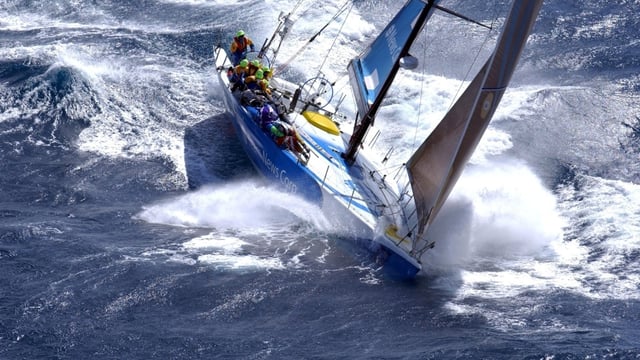
Cross an ocean or two, sign up for deliveries, the aim is to attain skills through diverse experience. You will sail with fantastic sailors, and possibly terrible ones. The variety is all part of it.
In other words, learning what not to do is as valuable as learning what to do during this stage. When you cross an ocean there is a good chance you will have a variety of conditions, and will be on watches including, as a matter of course, night sailing.
Your aim is to log at least 2,500 miles, with at least four distinct major journeys, sailing with several different skippers, in a variety of areas, sampling a variety of experiences. Here are some ideas on how you can build your sea miles.
If you do your Intermediate Sailing Course with Sailing Virgins, we will share tips with you on how to find the longer passages, what to look out for and how to approach such an adventure. Every January Sailing Virgins also sponsors an alumni “ex-Virgins” sailing week, where students are invited to return to the Caribbbean for a low cost week of sailing and adventure.
6. VHF, First Aid Courses
Budget: $150 - $300
These are prerequisites for the Yachtmaster O shore course. One tip is to organise this when you book your Yachtmaster course (see below). Some of it can be done online. Many training centres (such as the Hamble School of Yachting , who we can vouch for) o ffer these courses as well as the RYA Yachtmaster Offshore preparation course (as described below)
7. RYA Yachtmaster Offshore course
Budget: $1,000 - $3,000
This is a week-long course where you will do five days of “preparation”, followed by two days of examination, carried out by an independent examiner.
The separation of preparer and examiner, the reputation of the non-profit Royal Yachting Association, and the fact that the Yachtmaster scheme was invented by the RYA, mean heading to Southampton (aka “Yachtmaster mecca”) is a valuable part of the process.
For most sailors, whether from Australia, New Zealand, South Africa, Europe or the US, sailing is a great sport. For the British, sailing saved their nation on more than one occasion.
Consequently the British have a reverence for sailing that does not really exist in any other culture we are aware of. It is nice to experience this as part of your journey to becoming a professional skipper. Blue skies and warm waters it isn’t, but well-honed sail training location with a variety of tidal and traffic experiences, it is.
We recommend Hamble School of Sailing as our favourite in southern England.
Budget: $500 - $1,500
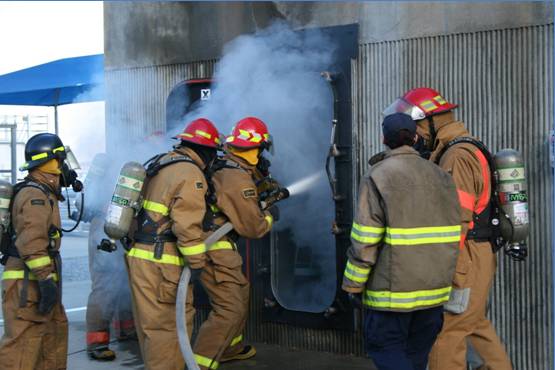
Short for “Standards of Training, Certification and Watchkeeping”, more commonly known as Commercial Endorsement, the STCW is a series of five mini-courses that allows you to work in the industry.
While not mandatory to become a Yacht Week skipper, it will be looked upon favourably when you apply to the Skipper Academy. Plus, STCW-qualified skippers will normally earn a weekly "bonus" for this qualification.
And particularly with the surprisingly realistic firefighting and sea rescue components (among a couple of admittedly boring subjects thrown in) it is a worthwhile learning experience in its own right.
The STCW series of courses can be done in a variety of places, including the UK, USA, Australia and for a low-cost option, the Philippines.
9. Quarterdeck Skipper Academy
Budget: $0 - $1,000
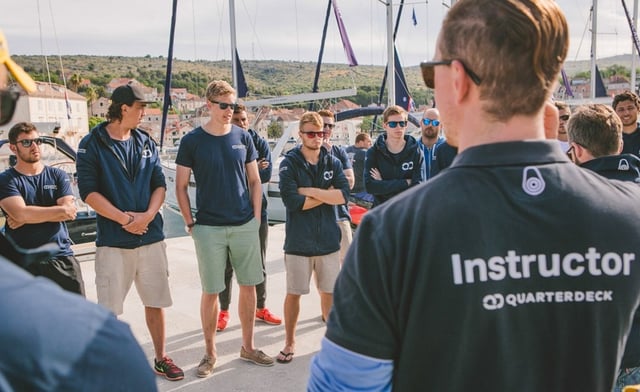
Image thanks Quarterdeck
With the steps outlined above ticked off , you are in a good position to apply for the Quarterdeck Skipper Academy. You may not be accepted to the academy, and even if you are, you may not pass, so a positive outcome to this step is by no means a certainty.
Conducting your Intermediate Sailing Course with Sailing Virgins will give you a much better idea of what Quarterdeck looks for in its candidates and how to optimise your chances of being accepted and passing the Skipper Academy.
How long does it take?
The fastest I have seen the process successfully take was someone dedicating six months of their life to sailing, including sailing in the Mediterranean, an ocean crossing, sailing with instructors for multiple weeks in the Caribbean, then heading to the UK to do their Yachtmaster.
This individual, an athletic, fast learner and already familiar with mechanical systems, later told me that six months felt hellishly fast for what he had achieved.
A normal process for someone taking weeks where they can, is around two years. There is no effective short-cut to this: people who try to override the natural learning curve end up losing confidence at precisely the wrong time.
Should Intermediate Courses be RYA, ASA, IYT, or NauticEd?
Below Yachtmaster Offshore, it really doesn't matter which syllabus you choose. We have written another blog post discussing this in further detail. In short, until you get to Yachtmaster Offshore (which is RYA), concentrate on the testimonials of the sailing school, and in particular what the instructors are like. Here is a blog post giving more detail on choosing a sailing school in the BVI.
What about Zero to Hero?
Some schools offer courses that start with the most basic sailing course, and provide the student with the miles and expertise to pass the yachtmaster exams in one go. These “zero to hero” courses can take between 8-12 weeks, and cost from $6K - $14K. That is, around the same cost as the steps described above if you were to do them individually.
The advantage of such a course is that it is more or less a guarantee that a Yachtmaster certificate will be attained.
However, such courses are looked upon with skepticism in the sailing community, and in the Yacht Week in particular. They tend to provide a “monocultural” experience, without the rich learning that comes through the longer, more peripatetic journey described above.

Becoming a Yacht Week skipper is a great thing to do. As well as being one of the best jobs on the water, the people you meet and the experience you gain whilst being a part of this organisation can set you up for years into the future.
The path described above, with nine steps to achieving Yachtweek Skipper status, is more than the bare minimum, for a reason: you want to be confident in your sailing before you are paid to do it.
Confidence comes with milage and variety. A mix of sailing in your local area, the Caribbean and the UK, decent instruction, plus at least one long journey such as an ocean crossing, should set you up for success.
Sailing Virgins is a Caribbean-based sailing academy for people in their 20s and 30s who wish to level up their sailing game. Check out our Intermediate Sailing Courses and our Island Adventures , both of which can gain you a sailing qualification that is an essential part of your path to becoming a Yacht Week skipper.
Please post any thoughts or questions in the comments below. Enjoy the journey.
Related posts
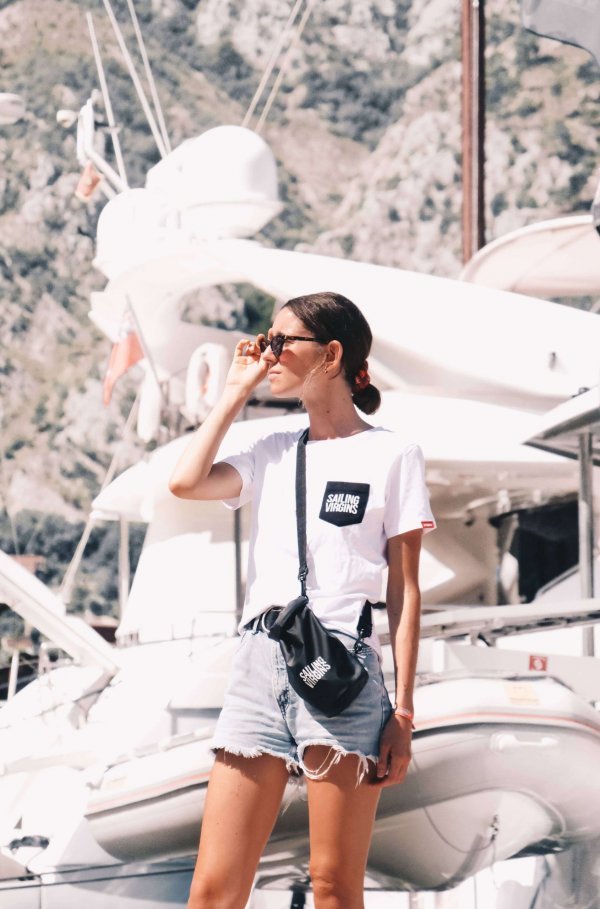
Essential Gear for Your First Sailing Adventure (2023)
Embarking on your first sailing adventure: must-have gear and essential tips.
If the call of the...
How to Pick Up a Mooring Ball
Picking up mooring balls is a key sailing skill. here's how to do it well. .
Picking up a mooring...
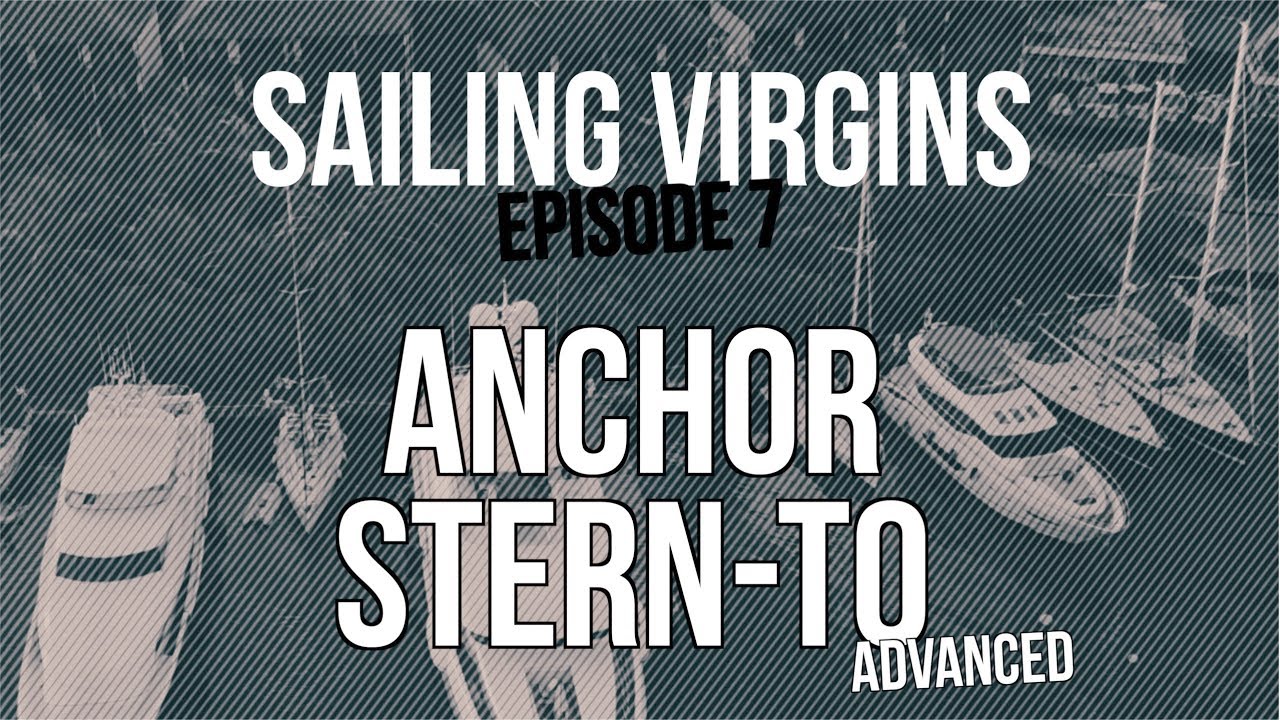
How To Anchor Stern-To (Video)
Anchoring stern-to can be daunting. here's how we do it..
Knowing how to anchor stern-to is critical...
Recent Posts
- August 2016 (11)
- May 2023 (11)
- April 2023 (10)
- September 2016 (8)
- November 2016 (5)
- June 2016 (3)
- July 2017 (3)
- March 2018 (3)
- November 2018 (3)
- June 2019 (3)
- June 2023 (3)
- October 2016 (2)
- January 2017 (2)
- February 2017 (2)
- May 2017 (2)
- August 2017 (2)
- October 2017 (2)
- February 2018 (2)
- December 2018 (2)
- June 2022 (2)
- July 2022 (2)
- November 2015 (1)
- April 2016 (1)
- May 2016 (1)
- December 2016 (1)
- April 2017 (1)
- September 2017 (1)
- November 2017 (1)
- December 2017 (1)
- January 2018 (1)
- April 2018 (1)
- July 2018 (1)
- September 2018 (1)
- January 2019 (1)
- July 2019 (1)
- September 2019 (1)
- January 2020 (1)
- March 2020 (1)
- April 2020 (1)
- May 2020 (1)
- June 2020 (1)
- April 2021 (1)
- August 2022 (1)
- October 2022 (1)
- December 2022 (1)
- July 2023 (1)
- August 2023 (1)
- January 2024 (1)
- how to (21)
- sailing (14)
- Sailing Tips (12)
- corporate (9)
- sailing course (7)
- General (6)
- Insider (6)
- professional development (6)
- vacation (6)
- Mindfulness (5)
- leadership (5)
- Performance (4)
- group travel (4)
- opinion (4)
- opinions (4)
- qualifications (4)
- Interview (3)
- Trip Notes (3)
- Uncategorized (3)
- adventure (3)
- sailing virgins (3)
- Instructor Course (2)
- Self-Care (2)
- catamarans vs monohulls (2)
- charter boat (2)
- island adventure (2)
- networking (2)
- preparation (2)
- sailing guide (2)
- youtube (2)
- Athlete (1)
- Beginner (1)
- City Guides (1)
- Failure (1)
- First Time (1)
- Maderia (1)
- check out (1)
- fishing (1)
- french polynesia (1)
- gear tips (1)
- golf vs sailing (1)
- safety brief yacht (1)
- the yacht week (1)
- trip review (1)
The founders of Sailing Virgins started things as a result of having some incredible sailing seasons in the Mediterranean and Caribbean working for sailing company The Yacht Week. James then worked for and for a while managed Tortola Sailing School. In 2016 he branched off and started Sailing Virgins. We LOVE how sailing is changing. Top speeds in the America’s Cup were thirteen knots not so long ago. Now they’re 45 knots. If you’re excited by that, we’re with you. Giddy up!
- Village Cay Wickhams Cay 1 Road Town VG VG1110, Road Town, British Virgin Islands
- +1 (284) 442-2288
- [email protected]
© LOVE SAILING VIRGINS 2016-2019
- Terms & Conditions
- Privacy Policy
- Fraud Policy Statement
- Affiliate Program
Skipper Academy
Learn. sail. work..
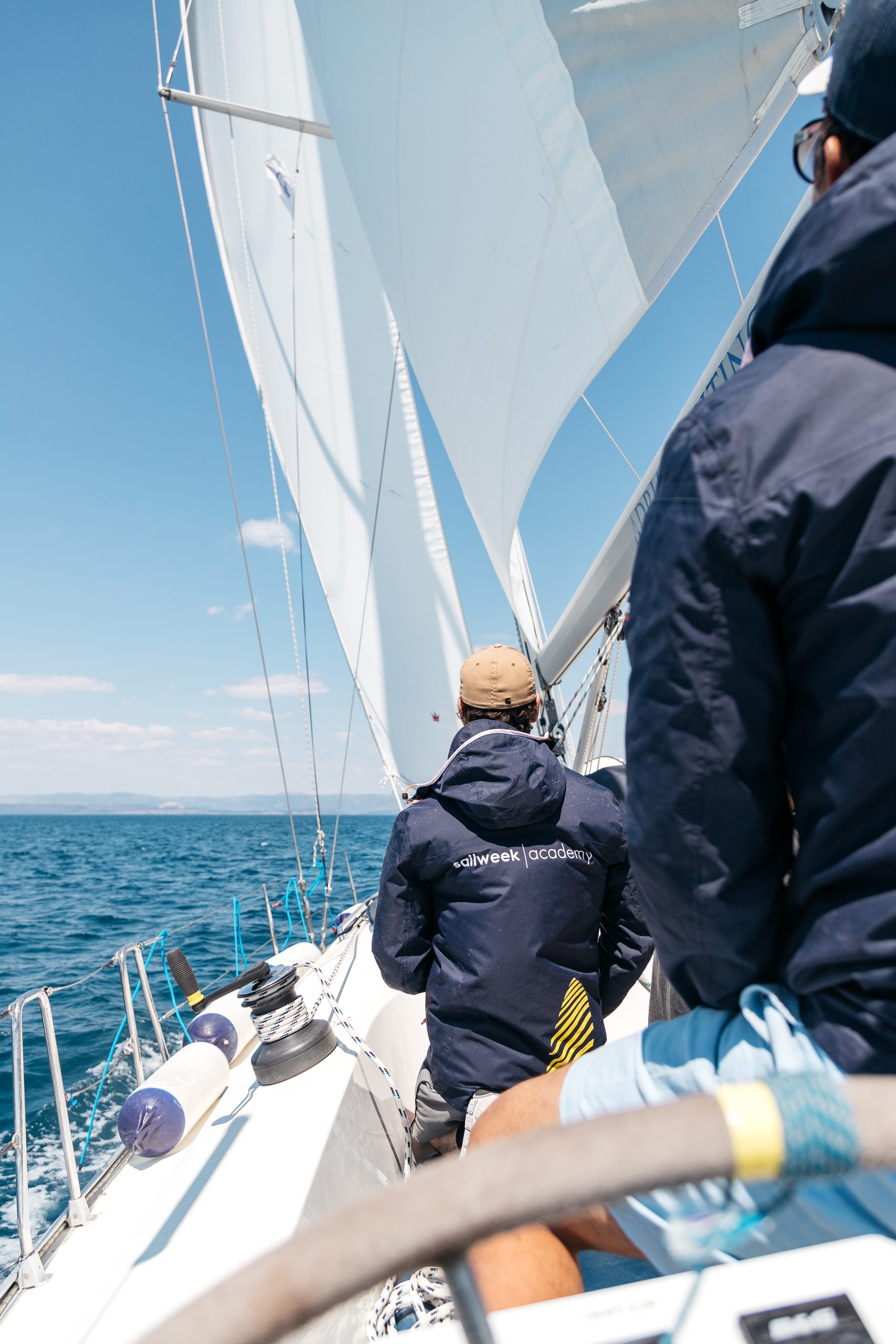
What opportunities will be available to me after successfully graduating from the SailWeek Academy?
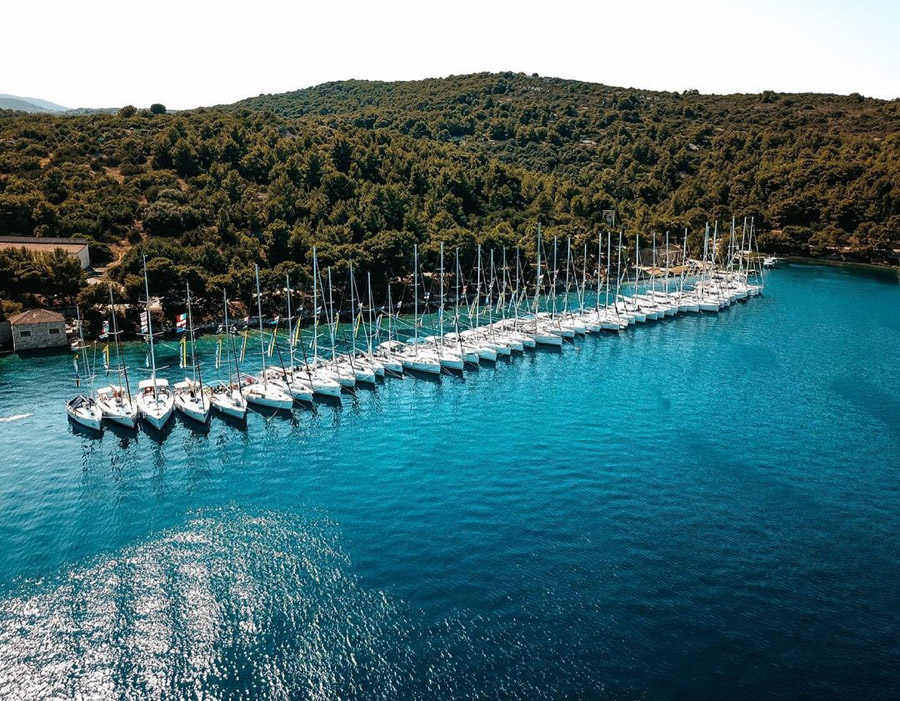
Which course is the right course for me?
- No prior sailing experience required
- Two distinct weeks of instruction
- Master the fundamentals of sailing and docking
- Ideal for launching a sailing career or simply expanding your knowledge
- Prepare for a fresh challenge
- Prior sailing experience required
- Internationally recognised license already acquired
- One-week intensive training
- Accelerated learning
- Elevate your career to the next level
- Previous experience sailing monohulls is required
- An already obtained internationally recognised license
- The beginning of a catamaran career
Beginner Course
- €100 (48h after getting your confirmation mail) *
- €750 (35 days after the first payment)
- €750 (30 days before the course)
- * The initial payment is a non-refundable deposit for the academy, which confirms your candidacy upon payment. If you choose to withdraw from the academy after making the payment, it will not be refunded.
- Last-minute application are considered all the application within 30 days before the course.
- For applications made within 30 days before the course, the total amount is due when making a application.
- Assumed knowledge: None or Basic
- License: No license required
- Age range: 18 - 36
- Language skills: Fluent in English
- Minimum duration: Split across 2 separate weeks
- Location: Split, Croatia
- Know Your Boat: Learn about maritime terms and different parts of a boat.
- The Basics of Sailing: Understand the fundamental principles of sailing.
- Rope-work & Nautical Knots: Learn various knots and their applications in nautical settings.
- Springs & Anchors: Gain knowledge about the use of springs and anchors in boating.
- General Seamanship: Learn essential skills and practices for safe and efficient boating.
- Maneuvering the Boat: Understand how to maneuver and control the boat effectively.
- Docking and Anchoring: Learn the techniques and procedures for docking and anchoring a boat.
- Terrestrial Navigation: Gain knowledge of navigation techniques using landmarks and terrestrial references.
- The Basics of Meteorology: Understand the fundamentals of weather and its impact on boating.
- Safety Awareness: Learn about safety measures and precautions to ensure a safe boating experience.
- First Aid: Gain knowledge of basic first aid techniques for boating emergencies.
- VHF Radio: Understand the use of VHF radio communication in boating.
- Communication Skills & Teamwork: Develop effective communication skills and teamwork for boating.
- Preparation for the Tour: Learn how to prepare and plan for a boating tour or expedition.
Please note that to maintain objectivity, the sailing instructor evaluating your skills and knowledge will be different from the instructor who guided you through the academy program. You will also have an additional examiner on shore.
- Your instructor’s assessment of your progress throughout the week
- Your performance on the practical exam
- The external evaluators observations from the shore
- Successfully navigates a boat during daylight hours in coastal regions.
- Demonstrate proficiency in docking a boat.
- Demonstrate proficiency in anchoring a boat.
- Skillfully sail a boat using sails.
- Resolve minor mechanical issues.
- Utilise VHF radio effectively.
You can either:
- Take the test in your own country
- Take the test in Croatia through our partner
After successfully finishing SailWeek Academy you will be ready to apply for any of the approved international licence tests listed bellow:
Advanced Course
- €100 (48 hours after getting your confirmation mail) *
- €450 (35 days after the first payment)
- €450 (30 days before the course)
- Qualifications: You must hold an internationally recognised sailing qualification. Please click here for valid accepted sailing licence.
- Experience: This is not a beginners course; you should be comfortable handling a yacht in any weather condition.
- Minimum duration: 7 days
- Location: Split, CROATIA and Athens, GREECE
- Advanced Seamanship Skills : Advanced skills required to operate a vessel safely and efficiently in all weather conditions. It includes knowledge of the vessel’s fittings and equipment, as well as practical skills necessary to operate and maintain the vessel.
- Maneuvering in Narrow Areas : Ability to navigate a vessel through narrow areas such as channels, harbors, and marinas. It requires precise control of the vessel’s speed and direction.
- Docking and Anchoring in Windy Conditions : Ability to safely dock or anchor a vessel in windy conditions. It requires knowledge of how wind affects the vessel’s movement and how to use that knowledge to control the vessel.
- Minor Individual Motor Repairs : Ability to perform minor repairs on a motorized vessel. It includes knowledge of basic engine maintenance, troubleshooting, and repair.
- Advanced Navigation : Advanced skills required for navigation at sea. It includes knowledge of celestial navigation, electronic navigation, and chart reading.
- Meteorology : Study of weather patterns and how they affect sailing conditions. It includes knowledge of weather forecasting, cloud formations, and wind patterns.
- Safety Awareness and Signals : Ability to recognize and respond to safety hazards while on board a vessel. It includes knowledge of safety equipment, emergency procedures, and communication protocols.
- Man Overboard (MOB) Exercises : Ability to respond quickly and effectively when someone falls overboard. It includes knowledge of rescue techniques, communication protocols, and emergency procedures.
- Boat Rescue Exercises : Ability to respond quickly and effectively when another boat is in distress. It includes knowledge of rescue techniques, communication protocols, and emergency procedures.
- First Aid : Ability to provide basic medical care in an emergency situation. It includes knowledge of CPR, wound care, and other life-saving techniques.
- Advanced Sailing and Sail Trimming : Advanced sailing techniques used for racing or high-performance sailing. It includes knowledge of sail trim, boat handling, and racing tactics.
- Sailing Regattas : Organized sailing events where boats compete against each other. It includes knowledge of racing rules, tactics, and strategies.
- Creating Line and Circle Rafts : Techniques used for tying boats together in a line or circle formation. It includes knowledge of knot tying, line handling, and boat positioning.
- Communication Skills : Ability to communicate effectively with other crew members while on board a vessel. It includes knowledge of communication protocols, radio operation, and signaling.
- Crew Handling : Ability to manage a crew effectively while on board a vessel. It includes knowledge of leadership skills, delegation, and motivation.
- Guest Management : Ability to provide excellent customer service while on board a vessel. It includes knowledge of hospitality skills, guest relations, and problem-solving.
- Tour Preparation : Ability to plan and prepare for a sailing tour. It includes knowledge of route planning, provisioning, and safety planning.
- Introduction to Locations and Local Tours : Introduction to local areas where sailing tours are conducted. It includes knowledge of local history, culture, geography, and attractions.
- Your instructor’s assessment of your progress throughout the week
- The external evaluator's observations from the shore
- Skipper a boat in coastal regions of the Mediterranean, Baltic, or non-tidal waters.
- Navigate a boat effectively in diverse weather conditions.
- Sail a boat at a superior standard.
Catamaran Course
- €550 (35 days after the first payment)
- €550 (30 days before the course)
- To attend this course you have to have one of the internationally recognised sailing qualifications. This is not a beginners course! You should be comfortable handling a yacht in any weather condition. Please check here for valid accepted sailing licence.
- Assumed knowledge: Please check Licenses needed to attend Advanced SailWeek Academy course
- Minimum age: 18
- Location: Central Dalmatia (Split region)
- Advanced Seamanship skills
- Maneuvering a catamaran
- Two engine maneuvering in narrow spaces
- Sailing a catamaran
- Docking and anchoring a catamaran
- Docking and anchoring during windy situation
- Minor individual motor repairs
- Advanced navigation
- Meteorology
- Safety awareness and signals
- MOB exercises
- Boat rescue exercise
- Advanced sailing and sails trimming
- Sailing regattas
- Creating line and circle rafts
- Communication skills
- Crew handling
- Guest management
- Preparation for the tour
- Introduction to the locations and Local tours
What's Included
- A certified Sailing Instructor from the Royal Yachting Association (RYA)
- 7/14 days of sailing in Croatia/Greece
- Accommodation on board the boat
- Bed sheets, blankets and towels
- Food during the course (we provide the groceries, you prepare the meals)
- Course materials (printed, audio, and video) and a SailWeek skipper handbook
- Fuel for the boat
- Marina fees
- Croatia/Greece tourist tax
- Final boat cleaning
- SailWeek jacket
Additional Costs
- Travel expenses to Split, Croatia or Athens, Greece
- Transport to the marina
- A group dinner ashore halfway through the week (not mandatory)
USEFUL LINKS
Sail & work.
- SailWeek guarantees a minimum of four weeks of work, allowing you to put your newly learnt skills into action.
- If you’re unable to complete the four weeks in the same year, you can transfer them to the following year.
- During your working weeks, you’ll have the chance to showcase your skills, work ethic, and attitude towards guests.
- Based on your overall performance, SailWeek may offer you additional weeks of work.
- As a skipper, you’ll be working as a freelance contractor, giving you the freedom to accept or reject any work offers that do not suit you.
- SailWeek covers all living expenses during the work period, ensuring you have a comfortable experience.
- The job involves sailing yachts ranging from 40 to 60 ft in size, providing a diverse and exciting work environment.
- While there is a minimum guaranteed income of €450, you also have the opportunity to earn up to €940 per week, plus tips.
- Depending on how many guest reservations are received, your four working weeks may not all be in the same year; however, this is unlikely.
- If your performance doesn’t meet the desired standards, SailWeek reserves the right to terminate the collaboration after the first week.
Ready to go?
Useful links.


Skipper on a Yacht – The Ultimate Guide
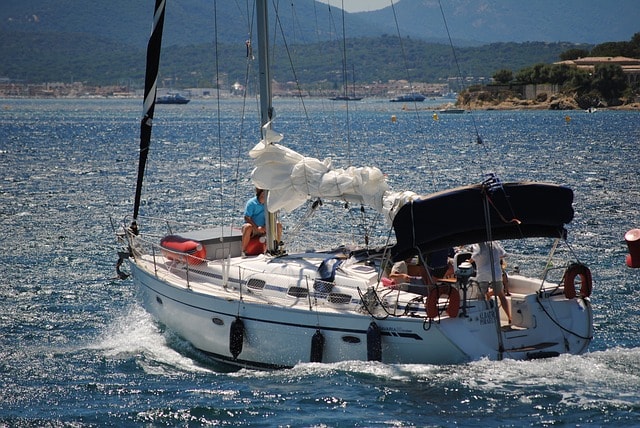
When it comes to sailing trips and holidays, a lot of people appear misinformed that it requires extensive knowledge of oceanic navigation as well as operating a boat.
The comforting truth, on the contrary, is that a sailing trip can be enjoyed by complete novices as much as any sailing pro.
Almost all yacht charter companies these days provide a skippered boat with a crew in addition to regular bareboat charters.
In other words, you can enjoy the freedom of being all by yourself in the serene blue ocean without any stress and responsibility.
In fact, in my early experiences on charter boats, I almost always had professional and experienced skippers in charge of navigation and operation. Even now, I often go on sailing holidays with a skipper on a yacht.
In this article, you can learn all about the benefits of hiring a skippered boat, tips to hire a professional and experienced captain, what you can legitimately expect from the skipper during your sailing trip as well as other relevant information.
Table of Contents
Responsibilities of the Skipper
The primary reason for chartering a skippered boat is to hand over the navigation and operation of the yacht to someone who has the necessary experience and knowledge.
In the case of your skipper, you can expect him to ensure the safe passage of the boat through responsible boat handling and safe seamanship.
In the case of a fully crewed yacht, the responsibilities of the skipper include making sure the crew understand and carry out their roles and duties.
The skipper is expected to maintain proper coordination among the crew.
To sum up, the tasks and responsibilities of a skipper are both technical and interpersonal. Apart from operating the boat and navigating it expertly, he should also ensure that the crew is obeying his command dutifully.
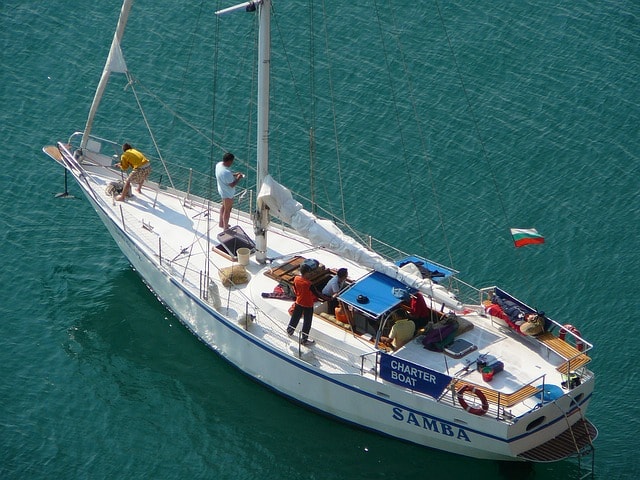
Who Should Choose the Option of a Skippered Yacht?
People with no or little sailing experience would have to choose the services of a professional and experienced skipper to make their trip a success.
Skippered yachts are perfect for those who do not possess a sailor’s license but want to partake in the fun of a sailing holiday.
Also, if you are part of a large group of friends and family, and want to leave the responsibility of sailing to the skipper to enjoy the trip in a stress-free manner, then you should certainly consider a skippered boat.
A skippered boat is also ideal for people who want to sharpen their sailing skill under the watchful eye of an experienced and professional sailor.
Even experienced sailors can benefit from professionally skippered boats if you want to partake in regattas and require that extra bit of help and professional knowledge.
Planning Your Itinerary With the Skipper
One of the best advantages of having a skippered boat comes from the help you would get in planning your sailing itinerary.
The skippers on particular routes have extensive knowledge of the best locations, coves, inlets, and beaches that you and your friends would enjoy during the trip.
They can help you plan the sailing trip in a way that makes it possible for you to see and experience the most during your trip.
Also, skippers are intimately aware of the prevailing weather conditions and may help you tweak your itinerary in such a way that adverse weather does not mar your holiday.
Last, but not the least, skippers know the best and cheapest places to moor the boat so that you do not spend extra at expensive marinas.
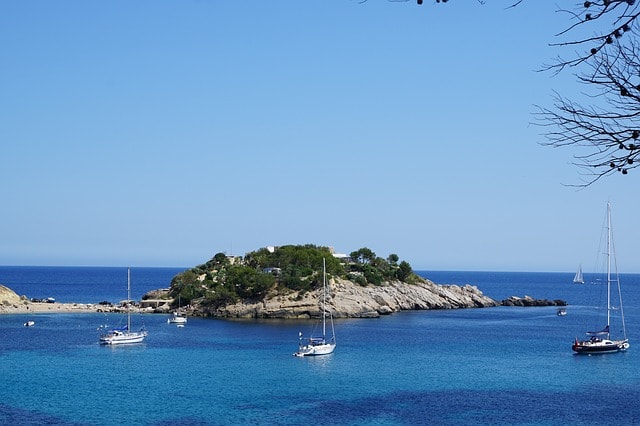
Does the Yacht Charter Price Include in Skipper’s Fees?
Yacht charter companies do not include the fees payable to a skipper when you lease their boats.
The fees commanded by the skipper is typically done at the base office, while the invoice for the same is generated and handed over to you after the completion of the trip.
The yacht charter companies only advertise the cost of hiring their boat, without the crew, complements, and skipper, on their brochures and websites.
Accommodation for Skipper Aboard the Boat
It is required that you reserve one of the cabins for skipper and his crew to rest and sleep in during your sailing trip.
Typically, a lot of boats have a special version for charter companies featuring extra cabins so that more people can be accommodated on the boat.
It is not required that you reserve the stateroom or other luxurious cabins for the crew. Typically, yachts come with a dedicated cabin for crew and feature bunk beds.
Who is Responsible for Skipper’s Meals?
It is customary that skippers be provided meals along with the crew by the chartering party. There is no requirement that the food should be fancy or gourmet quality, and the crew and skipper would typically eat whatever you serve.
During your trip ashore in the middle of your sailing holiday, it is considered nice to take the skipper to restaurants along with you.
However, there is no such requirement or custom, and you may just hand him enough cash for a meal at the local fast food joint.
Do’s and Don’ts for Skipper on Board the Yacht
As mentioned above, the primary role of the skipper on board the boat is to ensure a safe and enjoyable trip for everyone.
This means taking care of the technical aspects of sailing, including the correct deployment of mast and sails, safe moorings, checking the weather conditions, guiding the crew, and advise on the route.
The skipper, however, is not obligated to take the route preferred by you if they deem it dangerous due to any reason, including weather.
Similarly, you should not expect the skipper to perform menial tasks such as cleaning.
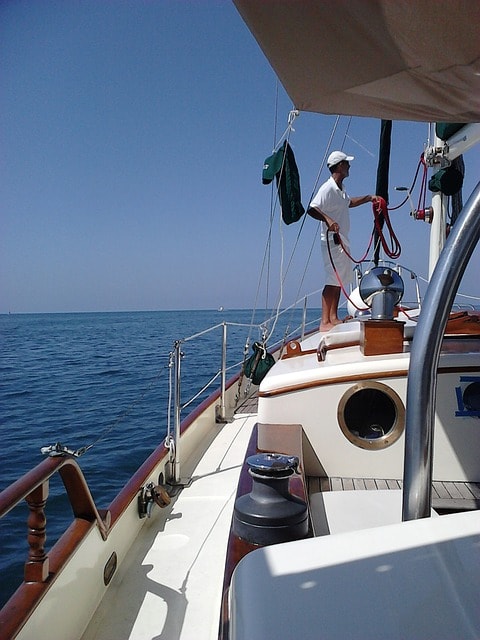
Cost of Hiring a Skipper
The cost of hiring a skipper dependent on some factors including his professional experience, the region you are sailing in, and the sailing season.
On an average, you should expect to pay between Euro 90 to 150 for each day of your sailing trip.
How to Tip the Skipper?
It is customary to tip the skipper at the end of the sailing trip. Typically, the tip works out to 10 percent of his total sailing fee.
However, if you liked his services and recommendations, then you may tip generously. The skipper will certainly appreciate it.
Advantages of Hiring a Skipper
Probably the best part of having a skippered boat is that it allows you to get the most out of your sailing holiday.
- In my personal experience, I have noticed that the presence of a professional and experienced skipper enabled us to plan our itinerary better.
- Many times, the skipper’s intimate knowledge of the local coastline and weather helped us see places that we did not expect and avoid rough weather.
- Skippers know the best places to eat during your trips ashore and have their own local sources to recommend the best places to see and visit.
- Also, you can truly enjoy a stress-free and blissful holiday with your friends and family safe in the knowledge that your boat is in capable hands.
In Conclusion
Skippered boats are probably a perfect way to introduce the joy of sailing holidays to those who have not experienced it before.
Even among those with sufficient sailing experience, there are a lot of benefits to having an experienced skipper in charge of the yacht.
There is no doubt that an experienced sailor would help you get more out of your holiday in every sense of the term. While it may be slightly costlier than bareboat charters, a skippered boat is certainly worth its price.
Need a skipper on your boat? Send your inquiry now, and you’ll receive a free skippered yacht charter quote!
Want to Know More Tips?
Sign up to Cruising Sea newsletter to receive every two weeks the latest post straight to your inbox!
Have you already hired a skipper? If so, what was your experience? Please feel free to share it by leaving a comment just below, I’ll be glad to hear your feedback:)

Daniella has been passionate about travel, the sea, and nature for many years. As a child, she frequently traveled throughout the Mediterranean and continued with her journeys throughout her adult life.
Her experiences have created the desire within her to share her love for traveling with other passionate and adventurers who want to discover beautiful horizons and new cultures.
7 thoughts on “Skipper on a Yacht – The Ultimate Guide”
Hi Daniella,
I just found out that I can charter a yacht with a skipper commandeering it. I was reluctant to go to the sea because I thought I have to go to a “sea” school first.
Especially, when you watch all the Hollywood movies that portray you can go on a cruise without a skipper. And then comes the storm. YUCK!
Now I can safely plan my trip with the skipper’s help. Thank you for bringing this to my attention and corrected my misinformation.
No problem. it’s a pleasure for me to inform the readers, this is the purpose of the website:)
I am happy that the misinformation has been cleared up! And, indeed, you can plan in complete tranquility your next trip with the help of a skipper, believe me, it is worth it:)
Thank you for the comment and wish you a nice day!
Thanks for the information on skippers on a yacht. I have never been on a yacht before and know very little about them except what they look like and are used for! So i enjoyed learning about the skipper as never actually heard that term before. It’s something that i would love to do one day, And the pictures make it seem like it is an amazing experience to have. Maybe one day!
Having a skipper on board is something fabulous:) You don’t need to worry about the navigation at all. They also know the environment well so you can count on him to bring you to best places as well:) Isn’t great?
Thank you for the comment and wish you a wonderful day!
Thank you for visiting my website and for the comment:) To answer your question, most charter companies offer to the client the option to hire a skipper for their sailing holiday. Skippers are not included in the price as they work independently and the cost per day will vary between 120 to 150 Euro, some, even more, depending on the skipper skill. If you own a yacht and you wish to hire a skipper, you can find one at “ Delivery Captain ” I hope it helped and if you need more information, feel free to contact me at any time, I’ll be more than happy to assist!
Have a wonderful day!
I really like your comment about how an experienced sailor would help you get more out of a holiday than sailing on your own. I imagine it would also be a good idea to work with a skipper if you plan to buy your own yacht as well, even if you plan on learning to sail (someone has to teach you, after all). I imagine that a skipper would have a lot of good information about different services as well, like yacht delivery if you plan to move for example.
I am glad you like the comment, thank you for the kind feedback:) Oh, yes, definitely, a skipper will not just navigate the boat, but he will also teach you a lot of things and will bring you to places you don’t know. A skipper is someone you can rely on!
Thank you again for the comment and wish you a wonderful day!
Leave a Comment Cancel reply
By using this form you agree with the storage and handling of your data by this website. *
- [email protected]
- +385 98 562 431
#postaniskipper
Skiper Akademija
Sail2Croatia präsentiert einen zweiwöchigen Kurs "WERDEN SIE EIN SKIPPER" , in dem Sie alle notwendigen Fähigkeiten und Kenntnisse für den begehrtesten Sommerjob dieses Jahres - Skipper - beherrschen.

Skipper Akademie
Der beste Start in meine Skipperkarriere, den ich mir vorstellen konnte!
Interested in this service? Contact us.
Be part of our "little" family and go to unforgettable journey with us subscribe to sail2croatia newsletter.

First refuelling for Russia’s Akademik Lomonosov floating NPP
!{Model.Description}
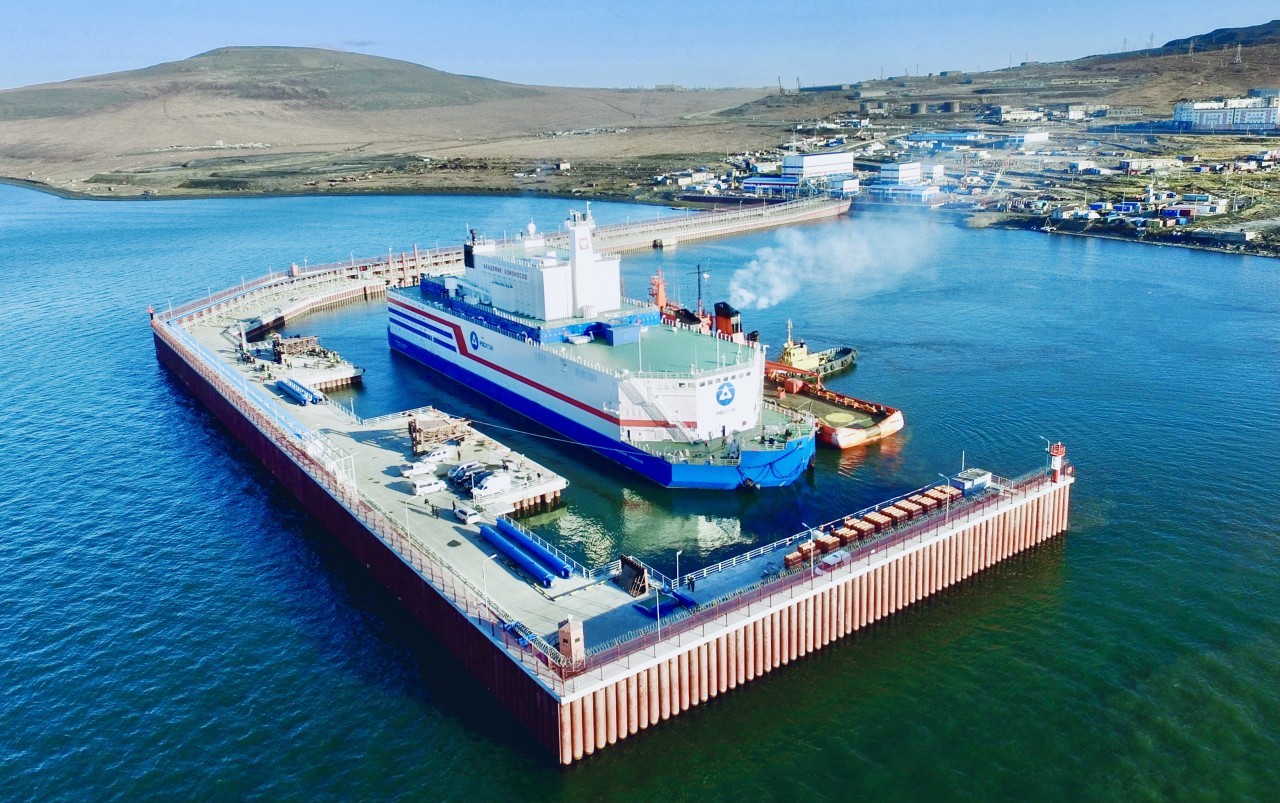
The FNPP includes two KLT-40S reactor units. In such reactors, nuclear fuel is not replaced in the same way as in standard NPPs – partial replacement of fuel once every 12-18 months. Instead, once every few years the entire reactor core is replaced with and a full load of fresh fuel.
The KLT-40S reactor cores have a number of advantages compared with standard NPPs. For the first time, a cassette core was used, which made it possible to increase the fuel cycle to 3-3.5 years before refuelling, and also reduce by one and a half times the fuel component in the cost of the electricity produced. The operating experience of the FNPP provided the basis for the design of the new series of nuclear icebreaker reactors (series 22220). Currently, three such icebreakers have been launched.
The Akademik Lomonosov was connected to the power grid in December 2019, and put into commercial operation in May 2020.
Electricity generation from the FNPP at the end of 2023 amounted to 194 GWh. The population of Pevek is just over 4,000 people. However, the plant can potentially provide electricity to a city with a population of up to 100,000. The FNPP solved two problems. Firstly, it replaced the retiring capacities of the Bilibino Nuclear Power Plant, which has been operating since 1974, as well as the Chaunskaya Thermal Power Plant, which is more than 70 years old. It also supplies power to the main mining enterprises located in western Chukotka. In September, a 490 km 110 kilovolt power transmission line was put into operation connecting Pevek and Bilibino.
Image courtesy of TVEL
- Terms and conditions
- Privacy Policy
- Newsletter sign up
- Digital Edition
- Editorial Standards


For the first time Rosatom Fuel Division supplied fresh nuclear fuel to the world’s only floating nuclear cogeneration plant in the Arctic
The fuel was supplied to the northernmost town of Russia along the Northern Sea Route.
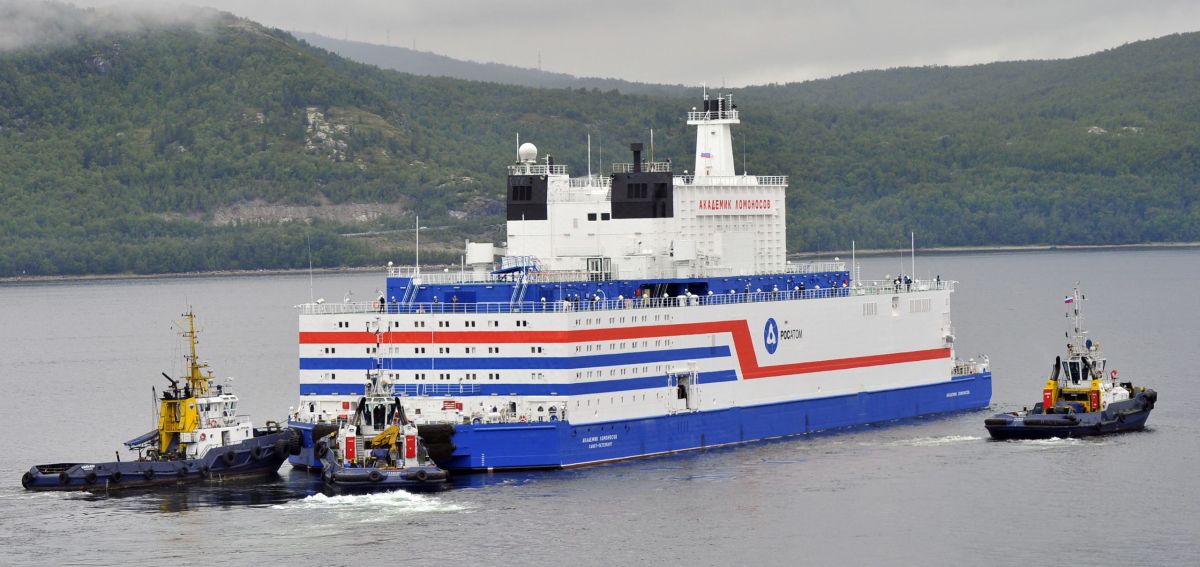
The first in the history of the power plant refueling, that is, the replacement of spent nuclear fuel with fresh one, is planned to begin before 2024. The manufacturer of nuclear fuel for all Russian nuclear icebreakers, as well as the Akademik Lomonosov FNPP, is Machinery Manufacturing Plant, Joint-Stock Company (MSZ JSC), a company of Rosatom Fuel Company TVEL that is based in Elektrostal, Moscow Region.
The FNPP includes two KLT-40S reactors of the icebreaking type. Unlike convenient ground-based large reactors (that require partial replacement of fuel rods once every 12-18 months), in the case of these reactors, the refueling takes place once every few years and includes unloading of the entire reactor core and loading of fresh fuel into the reactor.
The cores of KLT-40 reactors of the Akademik Lomonosov floating power unit have a number of advantages compared to the reference ones: a cassette core was used for the first time in the history of the unit, which made it possible to increase the fuel energy resource to 3-3.5 years between refuelings, and also reduce the fuel component of the electricity cost by one and a half times. The FNPP operating experience formed the basis for the designs of reactors for nuclear icebreakers of the newest series 22220. Three such icebreakers have been launched by now.
For the first time the power units of the Akademik Lomonosov floating nuclear power plant were connected to the grid in December 2019, and put into commercial operation in May 2020. The supply of nuclear fuel from Elektrostal to Pevek and its loading into the second reactor is planned for 2024. The total power of the Akademik Lomonosov FNPP, supplied to the coastal grid of Pevek without thermal energy consumption on shore, is about 76 MW, being about 44 MW in the maximum thermal power supply mode. The FNPP generated 194 million kWh according to the results of 2023. The population of Pevek is just a little more than 4 thousand, while the FNPP has a potential for supplying electricity to a city with a population of up to 100 thousand people. After the FNPP commissioning two goals were achieved. These include first of all the replacement of the retiring capacities of the Bilibino NPP, which has been operating since 1974, as well as the Chaunskaya TPP, which has already been operating for more than 70 years. Secondly, energy is supplied to the main mining companies in western Chukotka in the Chaun-Bilibino energy hub a large ore and metal cluster, including gold mining companies and projects related to the development of the Baimsk ore zone. In September 2023, a 110 kilovolt power transmission line with a length of 490 kilometers was put into operation, connecting the towns of Pevek and Bilibino. The line increased the reliability of energy supply from the FNPP to both Bilibino consumers and mining companies, the largest of which is the Baimsky GOK. The comprehensive development of the Russian Arctic is a national strategic priority. To increase the NSR traffic is of paramount importance for accomplishment of the tasks set in the field of cargo shipping. This logistics corridor is being developed due regular freight voyages, construction of new nuclear-powered icebreakers and modernization of the relevant infrastructure. Rosatom companies are actively involved in this work. Rosatom Fuel Company TVEL (Rosatom Fuel Division) includes companies fabricating nuclear fuel, converting and enriching uranium, manufacturing gas centrifuges, conducting researches and producing designs. As the only nuclear fuel supplier to Russian NPPs, TVEL supplies fuel for a total of 75 power reactors in 15 countries, for research reactors in nine countries, as well as for propulsion reactors of the Russian nuclear fleet. Every sixth power reactor in the world runs on TVEL fuel. Rosatom Fuel Division is the world’s largest producer of enriched uranium and the leader on the global stable isotope market. The Fuel Division is actively developing new businesses in chemistry, metallurgy, energy storage technologies, 3D printing, digital products, and decommissioning of nuclear facilities. TVEL also includes Rosatom integrators for additive technologies and electricity storage systems. Rosenergoatom, Joint-Stock Company is part of Rosatom Electric Power Division and one of the largest companies in the industry acting as an operator of nuclear power plants. It includes, as its branches, 11 operating NPPs, including the FNPP, the Scientific and Technical Center for Emergency Operations at NPPs, Design and Engineering as well as Technological companies. In total, 37 power units with a total installed capacity of over 29.5 GW are in operation at 11 nuclear power plants in Russia. Machinery Manufacturing Plant, Joint-Stock Company (MSZ JSC, Elektrostal) is one of the world’s largest manufacturers of fuel for nuclear power plants. The company produces fuel assemblies for VVER-440, VVER-1000, RBMK-1000, BN-600,800, VK-50, EGP-6; powders and fuel pellets intended for supply to foreign customers. It also produces nuclear fuel for research reactors. The plant belongs to the TVEL Fuel Company of Rosatom.

Rosatom obtained a license for the first land-based SMR in Russia
On April 21, Rosenergoatom obtained a license issued by Rostekhnadzor to construct the Yakutsk land-based SMR in the Ust-Yansky District of the Republic of Sakha (Yakutia).

ROSATOM and FEDC agree to cooperate in the construction of Russia's first onshore SNPP
ROSATOM and FEDC have signed a cooperation agreement to build Russia's first onshore SNPP in Yakutia.

Rosatom develops nuclear fuel for modernized floating power units
Rosatom has completed the development of nuclear fuel for the RITM-200S small modular reactor designed for the upgraded floating power units.

IMAGES
VIDEO
COMMENTS
DAS Yacht-Skipper Training bereitet Sie umfassend auf diese Aufgabe vor und „krönt" Ihre Anstrengungen mit dem englischen RYA Yachtmaster™ Offshore bzw. Ocean.Die wenigsten unserer TeilnehmerInnen sehen hier den rechtlichen Führerschein als Ziel, sondern vielmehr die Prüfung als einen gemeinsamen Leitfaden und Abschluss auf dem Weg, sich als Skipper in Gezeitenrevieren sicher zu fühlen.
Dieseltank: 310 l. Kabinen: 5. Einsatz: Diese Yacht wird hauptsächlich für unsere Skippertrainings im Solent, Englischer Kanal und Schottland eingesetzt. Komfortausstattung: Webasto-Diesel-Standheizung, elektrische Zusatzheizungen, Warmwassersystem, Bugstrahl-ruder, Kartenplotter Raymarine C 90, Raymarine Radaranlage, AIS, Komfort-Matratzen ...
Die Yacht-Skipper Akademie Bernd Reese Altenessener Straße 408-412 45329 Essen Deutschland. Telefon: +49 02 01 31 97 493 [email protected] www.die-yacht-skipper-akademie.de. Bildergalerie. Mehr erfahren. Zur Webseite des Anbieters wechseln. Schlagworte; Ausbildung; Ausbildungstörns; RYA; Segelausbildung;
Training Centre. Die Yacht-Skipper Akademie. Altenessener Strasse 412, Essen, Essen, 45329. Germany
The Yacht Academy specialises in professional Skipper development, partnering with the best schools and staff. 1. GET QUALIFIED. Choose the Training Programme for you. We have selected some of the best schools in the industry to provide training and examination to attain your Yachtmaster Offshore qualification. 2. GET EXPERIENCE.
DAS Yacht-Skipper Training - Coastal/Offshore Price per person 15,250.00 GBP including 20% VAT Upgrade single cabin 750.00 GBP per week. Prices excluding RYA exam fees. Prices include/exclude Prices include Yacht charter, training, wet gear rental, bedding & towel service, diesel, berthing, non-alcoholic drinks and basic food package Courses in GB
New skippers don't need to be at the helm, and giving crew tasks will keep them happy and motivated. Credit: Matthew Diggle TAGS: boat crew Practical seamanship RYA sailing yacht. It's a pity that skippering a boat for the first time can seem so intimidating. Not much beats the feeling of being in charge of a yacht, deciding where to go, and ...
Join our Skipper or Hostess Academy. The Perfect start to your future career. We offer complete training courses for beginners and skippers with extra attention to customer care services on board. ... Work & Sail on yachts and catamarans from 40 to 64ft length A job all your friends are jealous of :) 01. Spend your summer at sea. 02. Become a ...
A skipper is a person who has command of a boat or watercraft and is more or less equivalent to a captain in charge of a ship. The skipper may or may not be the owner of the boat. There are a number of types of different roles including flotilla, charter and delivery skippers.
Call 0208 324 3118 Email [email protected]. Training in Croatia Training in Greece Training in the UK. Monday to Friday. 0900 to 1800. Saturday. 0930 to 1700. Seafarer Sail training offers a RYA courses and advice on how to become a qualified yacht skipper. From Competent Crew, Day Skipper and Costal Skipper.
The nine steps below will help you to become not just a skipper for The Yacht Week, but a confident one at that. 1. Basic sailing experience. Budget: $0 - $500. Classic Sailing Virgins Education. Either through sailing with a friend, joining a local community sailing club or a university sailing club.
OPEN. Course price for 2024: €1600. Location: Central Dalmatia (Croatia, Split region) Payment plan: 3 instalments. €100 (48h after getting your confirmation mail) *. €750 (35 days after the first payment) €750 (30 days before the course) Note. * The initial payment is a non-refundable deposit for the academy, which confirms your ...
In the case of a fully crewed yacht, the responsibilities of the skipper include making sure the crew understand and carry out their roles and duties. The skipper is expected to maintain proper coordination among the crew. To sum up, the tasks and responsibilities of a skipper are both technical and interpersonal.
Rent Yachts, Book Skipper Training and Plan Team Building Events in Croatia Islands and Coast for Your Best Summer Holiday on the Sea. [email protected] +385 98 562 431
Das Mieten einer Yacht oder eines Katamarans in Kroatien mit einem Skipper-Training ermöglicht es Ihnen, in kürzester Zeit ein zuverlässiger Skipper zu werden. [email protected] ... Skipper Akademie. Der beste Start in meine Skipperkarriere, den ich mir vorstellen konnte!
Die Yachtskipper Akademie - Business Information. Industrial Machinery & Equipment · Germany · <25 Employees. Die Yachtskipper Akademie is a company that operates in the Machinery industry. It employs 6-10 people and has $1M-$5M of revenue. The company is headquartered in Germany. Read More. View Company Info for Free
Rosatom's fuel company TVEL has supplied nuclear fuel for reactor 1 of the world's only floating NPP (FNPP), the Akademik Lomonosov, moored at the city of Pevek, in Russia's Chukotka Autonomous Okrug. The supply of fuel was transported along the Northern Sea Route. The first ever refuelling of the FNPP is planned to begin before the end of ...
Get directions to Yuzhny prospekt, 6к1 and view details like the building's postal code, description, photos, and reviews on each business in the building
21 April 2023 Rosatom obtained a license for the first land-based SMR in Russia. On April 21, Rosenergoatom obtained a license issued by Rostekhnadzor to construct the Yakutsk land-based SMR in the Ust-Yansky District of the Republic of Sakha (Yakutia).
Moscow, Russia. Moscow is the capital and largest city of the Russian Federation. The city stands on the Moskva River in Central Russia, with a population estimated at 13.0 million residents within the city limits, over 18.8 million residents in the urban area, and over 21.5 million residents in the metropolitan area.